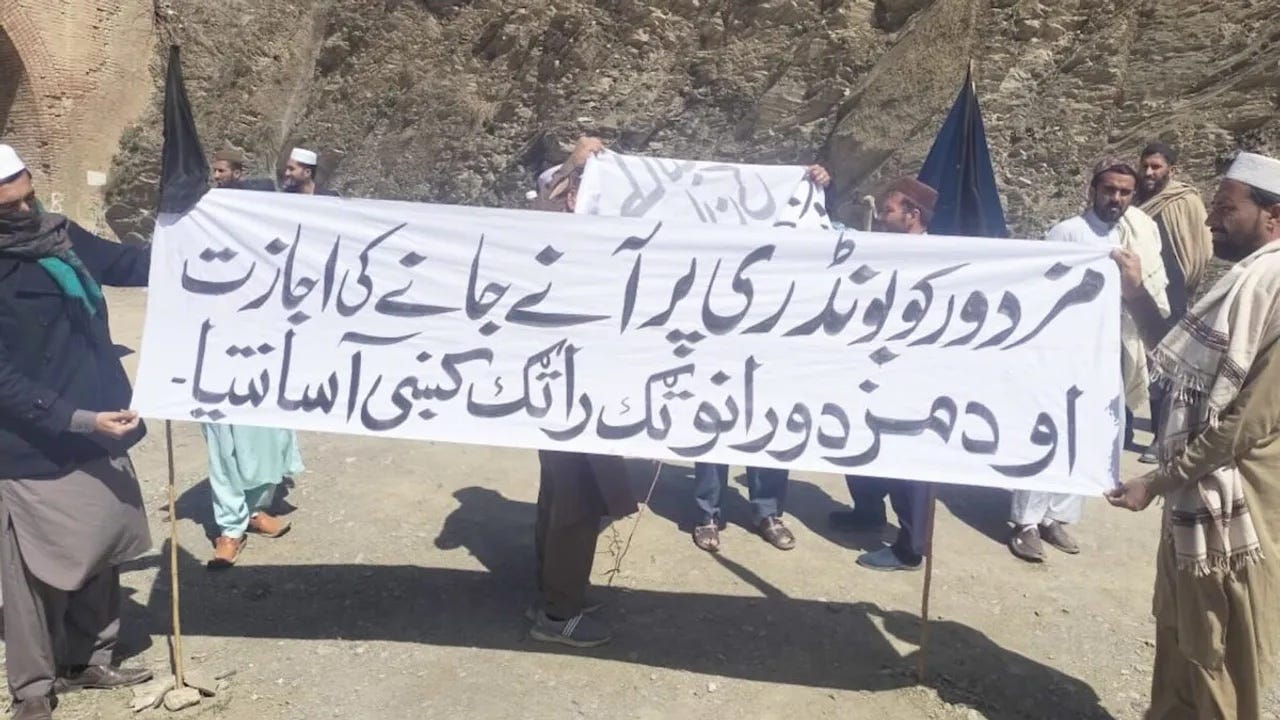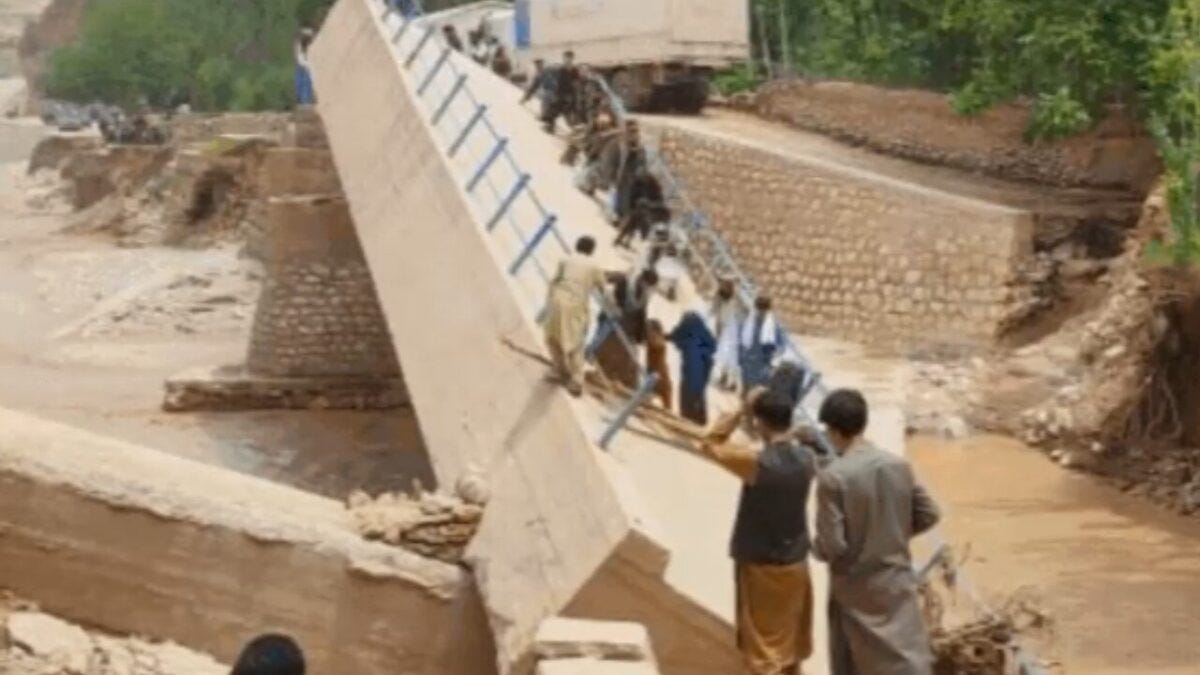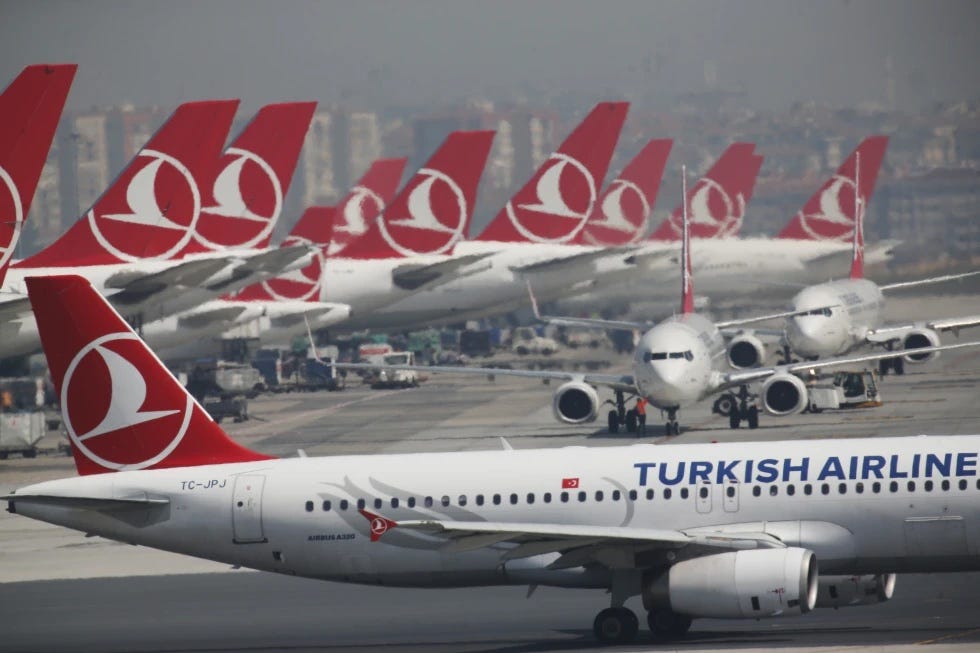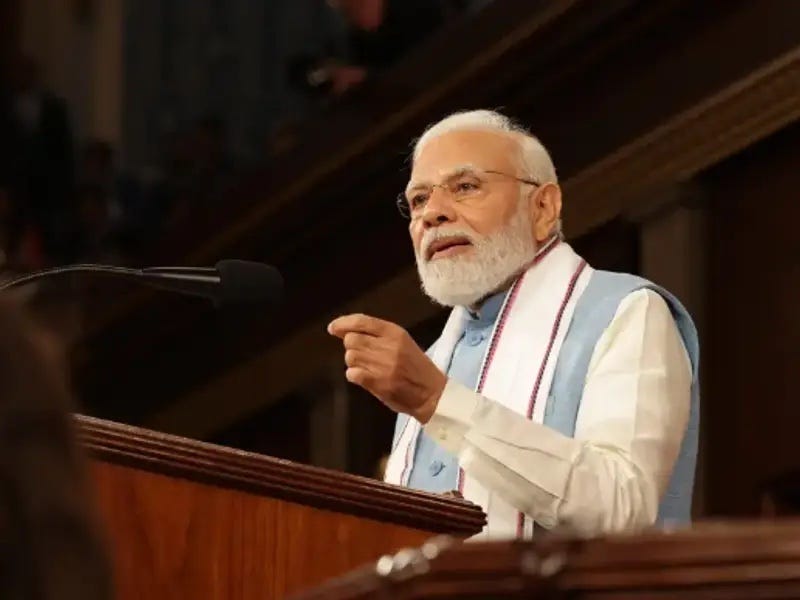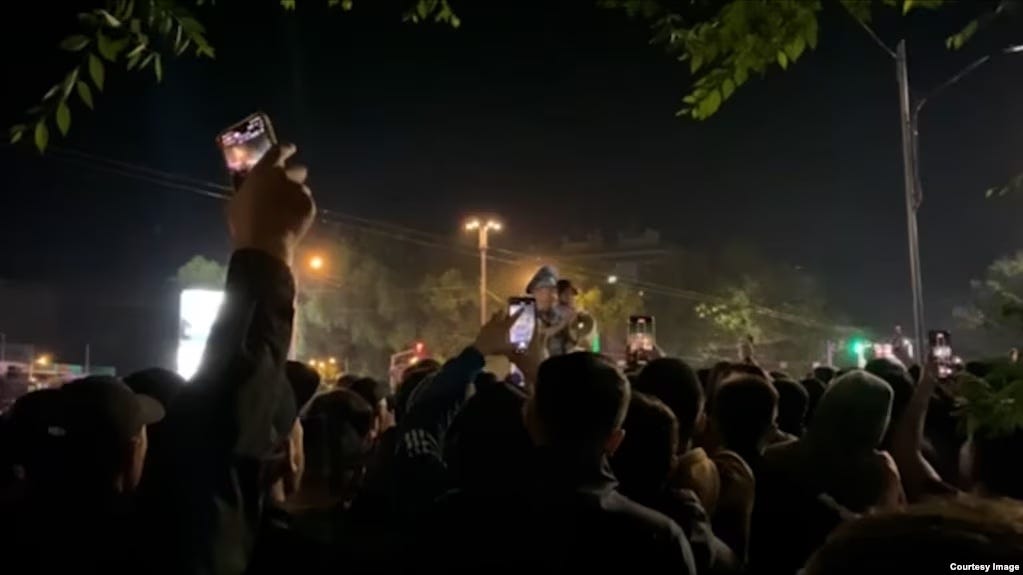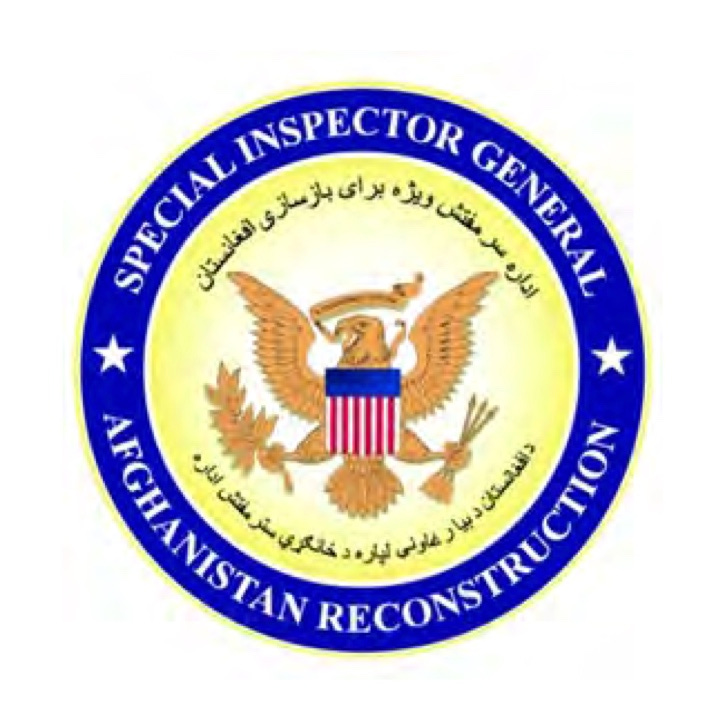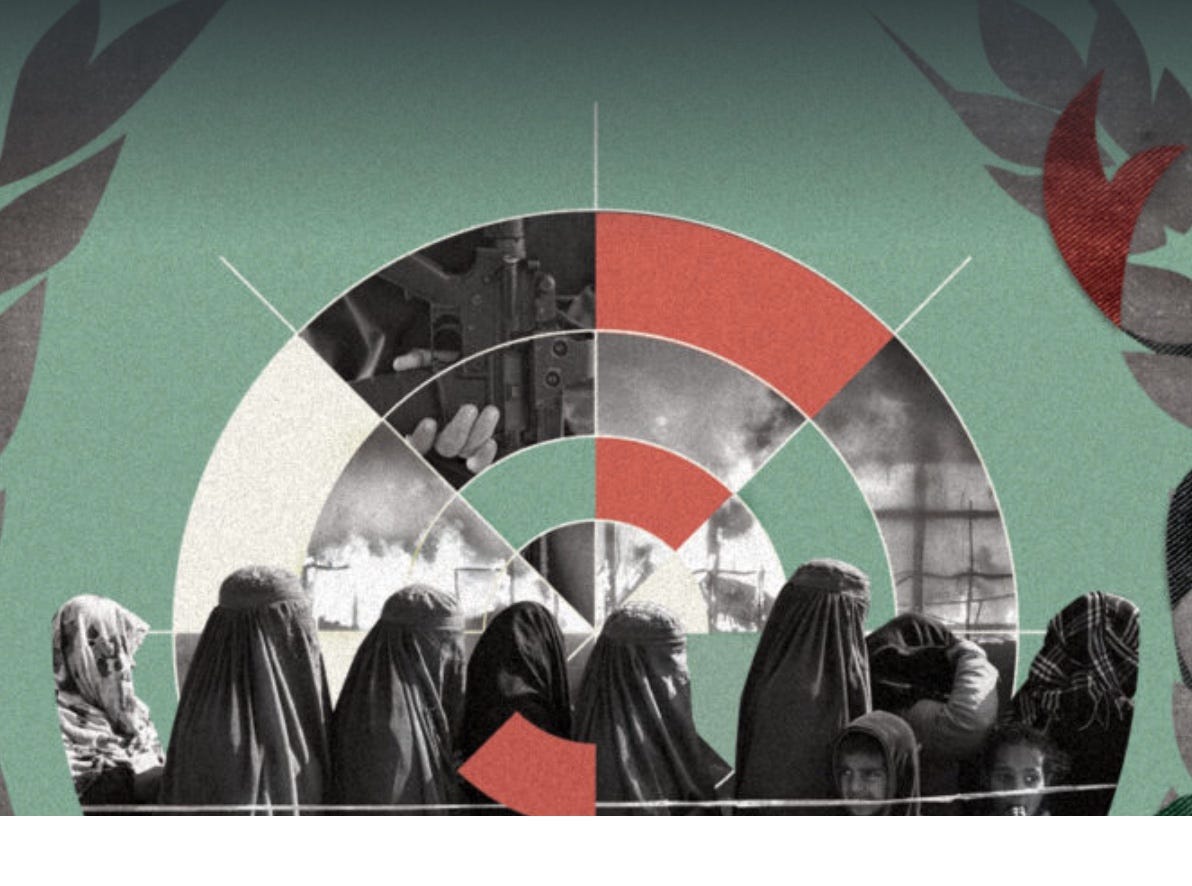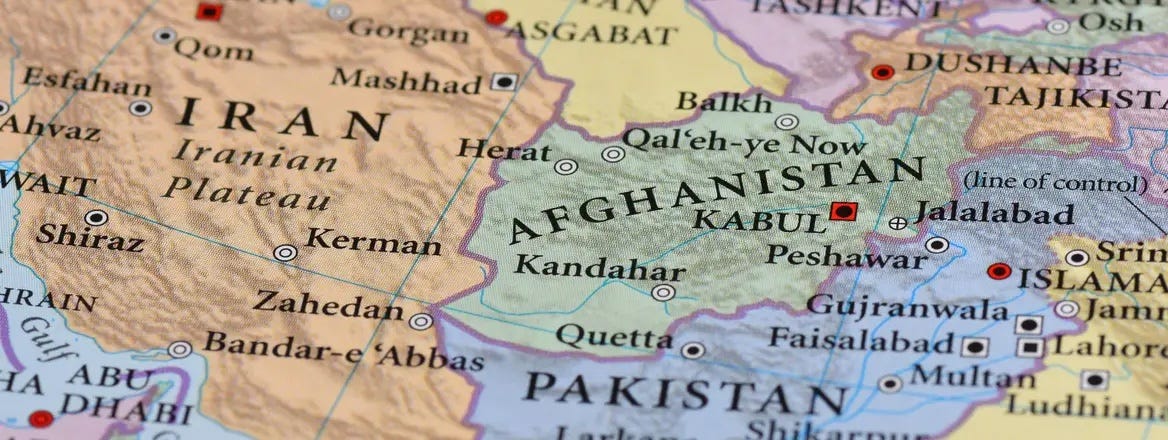The Week of May 20-26
Security and Conflict
Attack in Kandahar – On Monday at 7:00 AM, a grenade explosion occurred in PD 10, Kandahar City, near Spin Boldak and Kabul Base. The Taliban reported that the grenade was placed in a roadside cart. Initial reports indicate significant damage and injuries, with the death toll ranging from 1 to 6; the Taliban confirmed 4 deaths, possibly including a Taliban commander. Security forces responded immediately and launched an investigation. ISKP has claimed responsibility for the attack, stating that an IED detonated on a bus carrying Taliban members, destroying the vehicle and causing over 20 casualties, including a commander.
Meeting on Security Held in Kandahar – Taliban fighters and senior officials convened in Kandahar on May 21 to discuss security issues. The meeting included the governor, police chief, and other high-ranking officials, who emphasized fulfilling responsibilities, increasing patrols, and ensuring security in the city. Officials were reminded to take attendance and monitor the attentiveness of fighters. The session also stressed the importance of addressing any neglect of duties, noting that the fighters are well-equipped and trained.
Human Rights and Civil Liberties
Civil Rights Activist Arrested – The Taliban arrested civil activist Noor Agha Ebrahimi in Kabul on Wednesday. Previously arrested twice for alleged collaboration with the Resistance Front, his current whereabouts are unknown. Ebrahimi had been detained after the Taliban's return to power but was later released. The Taliban have not commented on his recent arrest.
Poet Released from Taliban Detention – Ezzatullah Zawab, a poet and founder of Mina magazine in Nangarhar, was released from Taliban imprisonment after four months. His family confirmed his release on Monday. Zawab was arrested by the Taliban last year in Kabul, allegedly on charges of transporting ‘non-halal’ substances, an allegation often used by the Taliban to justify the detention of dissidents.
Floggings – On Tuesday, the Taliban Supreme Court announced the flogging of nine individuals in Nimroz and Bamyan provinces for "theft," "drinking alcohol," and "possessing a barrel of alcohol." On Saturday, six individuals were flogged in Ghor on charges of affairs and elopement.
Internal Politics
Taliban Conflict over GDI Position – AGT reports internal conflicts within the Taliban's intelligence involving Mullah Arif Akhundzada and Mullah Taj Mir Javid, supported by Mullah Wathiq. Tensions over senior positions have nearly resulted in clashes between Taliban figures.
Budget Passes – On Tuesday, it was announced that the yearly budget has been approved by Mullah Hibatullah. This follows heavy criticism over internal conflicts and delays in approving the budget. No details of the budget have been released.
Community Development Councils Dissolved – The Taliban's Supreme Leader has ordered the dissolution of Afghanistan's Community Development Councils (CDCs), per a Ministry of Rural Rehabilitation and Development (MRRD) letter. Over 13,000 CDCs, established under the National Solidarity Program, will have their duties, including project selection, transferred to Ulema Shuras (Councils of Religious Scholars).
Reports on Taliban Travel and Disputes – Abdul Malik Mubasher and Mullah Abdul Rahim Mazlum will reportedly travel to Turkey, the UAE, and Qatar to meet with Americans in Doha. The Taliban insist that only their representatives attend the Doha conference.
Former President Karzai Travels to Germany – The Taliban lifted the travel ban on former Afghan President Hamid Karzai, allowing him to leave for medical treatment in Germany. Previously, the Taliban had prevented Karzai from traveling for minor eye surgery.
International Developments
Third Doha Meeting – Former Afghan President Hamid Karzai and Abdullah Abdullah met with the UN's Rosemary DiCarlo on Sunday to discuss the third Doha meeting and other topics. On Tuesday, the political deputy of the Taliban prime minister expressed hope for the Taliban's participation in the upcoming meeting. This two-day meeting, scheduled for June 30 and July 1, will address Afghan issues, gathering international stakeholders to discuss the country's situation and potential solutions.
Taliban Conditions for Participating in Doha – Taliban officials have stipulated six conditions for participating in the third Doha meeting. First, they demand Afghanistan's seat at the United Nations. Second, they want the UN to revoke its appointment of a special representative for Afghanistan. Third, the Taliban insist on being consulted about the meeting's agenda and composition. They also oppose the inclusion of Afghanistan’s civil and political society representatives. Additionally, they state that topics like girls' education, women's employment, and an inclusive government should not be discussed, considering these as internal issues. Finally, they will only participate if the focus is on security, drug eradication, and combating ISIS. The UN, however, has a broader agenda, including girls' education, women's employment, human rights, and the Taliban's ties with al-Qaeda. The Taliban's participation hinges on the acceptance of their conditions, and the UN has yet to finalize the meeting's agenda. The Taliban emphasized the need for meaningful participation rather than ceremonial involvement. It remains unclear which other Afghan political groups will be invited to the third Doha meeting.
Taliban Meeting with Qatari Delegation – Mullah Abdul Ghani Baradar, the Taliban's Deputy Prime Minister for Economic Affairs, stressed to Qatari Deputy Foreign Minister Mohammed bin Abdulaziz Al-Khulaifi that any international conference on Afghanistan without Taliban representation would be ineffective. Baradar highlighted investment opportunities in Afghanistan and invited Qatari investors. Al-Khulaifi affirmed that Qatari investors will soon visit Kabul and urged Taliban participation in the upcoming Doha meeting for effective outcomes. Taliban officials, including Abdul Salam Hanafi and Mohammad Yaqoob Mujahid, also discussed investment and strengthening relations with Qatar. The Qatari delegation emphasized the need for the Taliban to protect human rights during this meeting.
Meeting between UN and Central Bank Officials – During a meeting with UN Deputy Secretary-General Rosemary DiCarlo on May 20, Hidayatullah Badri, head of the Taliban's Central Bank, stated that global sanctions have reduced Afghans' purchasing power and negatively impacted financial stability. He highlighted that international transactions are conducted unofficially due to these sanctions, which contravene the Central Bank's regulations. Badri urged the lifting of restrictions to restore the banking sector's access to international financial systems and alleviate the economic hardships faced by the Afghan people.
Tom West Meeting in UAE – On Monday, UAE Assistant Foreign Minister Lana Nusseibeh met with US Special Representative Thomas West to discuss joint efforts on implementing UN Security Council resolution 2721 and promoting security, stability, and prosperity in Afghanistan, with a focus on Afghan women.
Dr. Abdullah Meets with European Representatives – Abdullah Abdullah discussed the upcoming Doha meeting with EU, UK, and Spain representatives. He expressed condolences to Spain’s diplomat for the deaths of Spanish citizens in Bamyan and thanked the EU for its flood assistance, urging increased aid due to extensive flood damages.
Freedom of the Press
Virtue and Vice Meeting with Media – On Monday, the Taliban's Minister of Promotion of Virtue and Prevention of Vice, Khalid Hanafi, urged media officials to align their activities with "Islamic Sharia and Afghan culture" to support the Islamic upbringing of the next generation. This was emphasized in a meeting in Kabul, with warnings from Taliban intelligence in Parwan and other provinces against non-compliance. The Taliban have imposed severe media restrictions, censoring content and persecuting journalists, which media support organizations condemn as violations of freedom of expression.
Criticism over Banning Shia Texts – Shia followers criticize the Taliban for banning Ja'fari jurisprudence books and removing them from university libraries, arguing that access to religious information is a fundamental right. They claim that these actions disrespect religious freedom and hope the Taliban will change their policies to respect all religions in Afghanistan.
Regional Developments
Torkham Reopens – Officials of the Torkham Commissionerate in Nangarhar province reported that the Torkham border gate has reopened for passenger movement after a three-day closure by Pakistan to transfer their offices to a new building. The gate reopened at 7:30 AM on Monday.
Kharlachi Reopens – The Kharlachi border crossing in Paktia, Afghanistan, reopened after a six-day closure caused by clashes between Taliban forces and Pakistani border guards over a checkpoint construction. The conflict, resolved by local elders and officials, resulted in significant damage to the Dand Patan market and financial losses for merchants.
Pakistan Cargo Truck Registration Mandate – Pakistan now requires Afghan cargo trucks to register for "temporary entry permits" through the Directorate of Transit Trade offices in Peshawar and Quetta to enter the country, as reported by The Express Tribune on May 26. This includes obtaining temporary entry documents (TED) and following specified transit routes under the Afghanistan-Pakistan Transit Trade Agreement (APTTA). Drivers and cleaners are exempt from fees.
Taliban Meeting with Hamas – While in Iran, the Taliban delegation met with the Emir of Qatar and the Hamas leader in Tehran. Details of the meeting are not publicly available.
Pakistani Foreign Minister Statement on Afghans – At the SCO meeting, Pakistan's Foreign Minister Ishaq Dar urged the Taliban to embrace inclusive politics and respect all Afghans' rights. He called for reviving the SCO Afghanistan contact group and stressed preventing terrorist groups' activities. Dar emphasized international engagement to improve Afghanistan's economy and humanitarian conditions. The new statement indicates a shift in messaging by the Pakistani government from counterterrorism and issues related to the TTP to a focus on inclusive governance in Afghanistan.
Iranian Statement on Afghan Migrants – In a recent interview with the Iranian newspaper Ettela'at, Hassan Kazemi Qomi, the Special Representative of the Iranian President for Afghanistan Affairs, stated that no one in Iran supports the arrival of Afghan migrants. He clarified that government agencies do not encourage such migrations, emphasizing that Iran's policy mandates the return of illegal entrants. Qomi highlighted that there are nearly six million Afghan migrants in Iran, with one million working as laborers. While acknowledging the positive economic contributions of Afghan labor, he stressed that illegal migrants must leave. Qomi also noted efforts to seal the Iran-Afghanistan border to prevent further illegal entries and called for the return of Afghans whose visas have expired. Iran continues to rely on Afghan refugees/fighters in its war in the Middle East.
Iran Statement on Drugs from Afghanistan – Iraj Kakavand, head of Iran's Anti-Narcotics Department, reported increased drug cultivation and trafficking in Afghanistan despite Taliban claims. Speaking in Moscow, he noted over 662 tons of drugs seized in Iran in 2023 and early 2024, emphasizing the need for global intelligence cooperation to combat trafficking.
Turkish Investments in the Mining Sector – Turkish businessmen, particularly Recep Mustafa of Emir Oglu Marble Company, are interested in investing in Afghanistan's mines, especially the marble mine in Kandahar, as stated by the Taliban Ministry of Mines. Minister Shahabuddin Delawar assured cooperation. The Taliban highlight mining investments, including a recent $7 billion investment, as key for their financial sustainability.
Deportations – Deportations continued from both Pakistan and Iran this week with up to 4,000 individuals being returned to Afghanistan daily. Recent reports often combine numbers of returnees from bordering countries, making exact numbers difficult to track. The most recent totals from Pakistan indicate that between September 15, 2023, and March 18, 2024, around 590,000 Afghan refugees returned home, with over 376,000 via Torkham and 196,000 via Spin Boldak, per a May 22 statement by a coalition of relief organizations. Since September, 529,000 deported migrants have received aid. Returnees include 62% children and adolescents, 48% women, and 87% plan to return to their original provinces.
Taliban Attend Raisi Funeral – A high-ranking Afghan delegation led by Abdul Ghani Baradar and Amir Khan Muttaqi traveled to Tehran to attend a three-day funeral for Ebrahim Raisi and his entourage. The Taliban's Foreign Minister and Deputy Prime Minister for Economic Affairs will participate in the ceremony organized by the Islamic Republic.
Kyrgyzstan Statement on Threats from Afghanistan – Kamchybek Tashiev, head of Kyrgyzstan's security, expressed concern over rising terrorism threats from Afghanistan at a CIS security meeting in Bishkek. He noted the growth of terrorists in Afghanistan's northern provinces, posing a risk to CIS southern borders. Calls for preventive measures were reiterated by CSTO and SCO members.
Miscellaneous
Flood Aftermath and Assistance – The United Nations Assistance Mission in Afghanistan (UNAMA) reported that the Baghlan flood has affected 60,000 people and resulted in 182 deaths, mostly women and children. UNAMA has dispatched humanitarian teams to aid flood victims in Baghlan, Badakhshan, and Takhar provinces, providing assistance to 15,000 people in Baghlan. Indrika Ratwatte, UNAMA's Deputy Humanitarian Affairs Coordinator, emphasized that international support is crucial. The flood last week caused over 310 deaths in Baghlan alone. On Tuesday, Uzbekistan sent 200 tons of humanitarian aid, including tents and food, to flood victims in Afghanistan. The aid arrived via Hairatan port and was handed over to Balkh provincial officials, according to Ismatullah Irgashev, Uzbekistan's special envoy for Afghanistan.
More Flooding – Floods in Faryab province, northern Afghanistan, have killed 66 people, with several missing and injured. The flooding damaged over 1,500 houses and 400 hectares of farmland, and killed hundreds of livestock. Heavy floods also hit Badakhshan province on May 25. In Faizabad, 10 people died, while in Yamgan district, five villages were damaged and roads were blocked.
NEXT WEEK
Afghans in Iran should be cautious with their social media presence, as there has been a crackdown on dissidents in the wake of President Raisi’s death last week.
Continued visits by UN and foreign delegations will occur in the lead-up to the next round of Doha talks. There will be heightened security, particularly in Kabul, and there may be an increase in attacks by resistance forces to highlight opposition to the Taliban and the ongoing conflict in the country. Women’s rights activists and social activists are also more likely to be active over the next few weeks.
REGIONAL ROUNDUP
IRAN
Interim Leadership announced – Members of Iran's 88-seat Assembly of Experts elected 93-year-old Movahedi Kermani as the new chairman, replacing 97-year-old former chairman Janati. Kermani received 55 votes. Mohammad Mokhber has been named interim president, and Ali Bagheri, deputy foreign minister for political affairs, has been appointed acting foreign minister of Iran.
Announcement on Elections – The Iranian government announced that the presidential election will be held on June 28. Candidate registration is scheduled from May 30 to June 3, with the campaign period running from June 12 to 27. The election calendar was approved on Monday in a meeting chaired by interim president Mohammad Mokhber.
Crackdowns on Dissidents – Iran's Cyber (FATA) Police Chief announced that 35 individuals are being prosecuted for online comments about President Ebrahim Raisi's death. The police chief equated these comments to "violating the country's moral standards and religious values," viewing them as an abuse of free speech. The cyber police have also identified 80 websites spreading rumors about the president's helicopter crash, issued warnings to site managers, and initiated judiciary cases with charges against them.
PAKISTAN
Imran Khan Acquitted in Azadi March – A local court on Monday acquitted former Prime Minister Imran Khan and other PTI leaders in cases related to the May 25, 2022, Azadi March. They were accused of violence, riots, and obstructing public service. The court ruled that the FIRs were filed by unauthorized individuals and lacked video evidence, leading to their acquittal.
Terrorism Crackdowns – Pakistan's military announced that nearly 30 terrorists were killed in counterterrorism operations along the Khyber Pakhtunkhwa and Baluchistan border provinces amid a surge in attacks from Afghanistan. The report follows a U.S. group's finding that Afghanistan has become a terrorist hub under the Taliban. Pakistan urged Kabul to prevent cross-border infiltration, but Afghan authorities denied the claims. A U.S.-Pakistan counterterrorism dialogue agreed to enhance cooperation against groups like TTP and IS-K.
Hundreds of people suffered heat stroke in Pakistan - An intense heat wave in Pakistan, with temperatures reaching 49°C (120°F) in Mohenjo Daro, has led to hundreds being treated for heatstroke. The heat wave, linked to climate change, is affecting the southern Sindh province and is forecasted to last for a week. Authorities have urged precautions, but many laborers must continue working to survive.
SPOTLIGHT ANALYSIS
Nascent Afghan Resistance Grows in Strength But Not A Threat to Taliban Rule
Will Selber
The Taliban is fighting to quash a multi-faceted resistance that is gaining strength, but the movement spearheaded by the National Resistance Front (NRF) is still too nascent to pose a threat to the Taliban’s rule. While the Taliban faces internal rifts and attacks from other radical Islamic terrorist groups, like the Islamic State, it is essential to remember that the anti-Taliban resistance groups also face a similar kaleidoscope of threats on an ever-evolving battlefield.
“We are not only fighting the Taliban,“ Ali Maisam Nazary, Head of Foreign Relations for the NRF, told FDD’s Long War Journal. “We are fighting Al Qaeda, the Islamic State, Tehrik-e Taliban Pakistan (TTP), and many other groups throughout Afghanistan.”
Ahmad Massoud Jr., son of legendary Mujahideen leader Ahmad Shah Massoud, leads the NRF, which has grown to become the largest and most active anti-Taliban resistance group. With a dedicated following in the U.S., the NRF is entering its third fighting season, primed to expand its operational footprint throughout the country. The NRF has claimed most of its recent attacks in Kabul. The NRF will likely focus on more targeted attacks following their unsuccessful defense of Panjshir in late 2021-2022.
AFGHAN NEWS
Taliban Kills 3 Protesters in Nangarhar Province Over Land Disputes
Aqsa Younas Rana
In a violent clash between local residents and security officials, the Taliban killed at least three protesters, including a woman, in the Barikab area of eastern Nangarhar province, Afghanistan. The incident occurred during protests over forced evictions and land ownership disputes.
Why this matters: The Taliban's heavy-handed governance and disregard for human rights continue to have devastating consequences for Afghan citizens, highlighting the need for the international community to hold them accountable. The ongoing instability and violence in Afghanistan have far-reaching implications for regional and global security.
Only one new appointment in Taliban’s cabinet in nine months
There has been only one new appointment within the Taliban’s cabinet over the past nine months, while 36 other appointments involved shifting Taliban authorities from one province or assignment to another, according to data collected by Amu.
This information comes from 11 appointment lists shared by Taliban spokesman Zabiullah Mujahid between September 2023 and May 21, 2024.
The report includes 37 Taliban appointments between September 20, 2023, and May 21, 2024. Eight of these appointments involved Taliban officials being shifted to new locations while holding the same positions in the provinces of Baghlan, Takhar, Kunar, Daikundi, Kabul, Nimroz, Laghman, and Nuristan.
Floods destroy roads, bridges in Afghanistan, hampering aid delivery: WFP
Amu TV
The World Food Program’s mission in Afghanistan revealed that recent flash floods have destroyed roads and bridges, making it difficult for the WFP to deliver food.
The WFP spokesman for Afghanistan, Philip Kropf, told Amu that the assistance included fortified biscuits and specialized nutritious food to prevent malnutrition among mothers and children.
Stalled Negotiations Over Release Of Three Americans Detained By Taliban
Talks between US officials and Taliban representatives concerning the release of three American citizens have reached an impasse, according to sources who spoke to Afghanistan International.
The Taliban are reportedly seeking the release of a member held in Guantanamo Bay as a condition for releasing the Americans. The identity of the Taliban member in Guantanamo remains undisclosed.These negotiations have stalled after multiple discussions between the CIA and Taliban officials, with the Taliban accusing the US of having reluctance to advance the talks.
Turkish Airlines resumes flights to Afghanistan nearly 3 years after the Taliban captured Kabul
Associated Press
Afghanistan’s Taliban government confirmed the resumption of Turkish Airlines flights to Kabul’s international airport, nearly three years after the carrier’s services were suspended following the collapse of the Western-backed government.
Afghanistan’s Ministry of Transport and Civil Aviation said that the first Turkish Airlines flight landed Tuesday and was greeted by government officials.
Turkish Airlines flights have returned with a schedule of four weekly round-trip flights between Istanbul and Kabul on Tuesdays, Wednesdays, Fridays and Sundays.
REGIONAL NEWS
What the Death of Iran’s President Really Means
Before he managed to best a weak field in a heavily orchestrated 2021 election, Iranian President Ebrahim Raisi’s primary claim to fame — or infamy, as the case may be — was his role in sending 5,000 political prisoners to their deaths. That mass murder in 1988 was part of a larger campaign by Iran’s theocratic state to intimidate its increasingly frustrated citizenry in preparation for the end of the eight-year war with Iraq and the death of the revolution’s founder, Ayatollah Ruhollah Khomeini. Raisi’s many victims might find satisfaction in his death, but the repressive regime he leaves behind will outlive him.
It is perhaps fitting that Raisi, who died in a helicopter crash on Sunday at 63, leaves behind another war that the regime helped to fuel and another looming leadership transition. Like the executions he fast-tracked in the revolution’s early decades, Raisi’s elevation was intended to sustain the revolutionary enterprise through the much anticipated succession of its current supreme leader, Ayatollah Ali Khamenei. Raisi’s unexpected loss will force the aging scions of Iran’s theocracy to improvise at a precarious moment at home and around the region. How they navigate this challenge will prove decisive for the future of Iran and the broader Middle East.
IMF's tax demands leave PM in a bind
Shahbaz Rana
The International Monetary Fund’s (IMF) prior condition to slap an 18% sales tax on almost all items being sold in Pakistan, including on medicines, to qualify for a new bailout package on Friday left Prime Minister Shehbaz Sharif high and dry.
Following a briefing on the IMF's tax-related conditions, the prime minister refrained from immediately greenlighting the implementation of the condition in the budget. Instead, he instructed the finance ministry to go back to the drawing board, according to sources privy to the meeting.
Tom Hussain
China has started to lean on Afghanistan’s Taliban regime to prevent cross-border attacks on Chinese personnel and interests in neighbouring Pakistan, according to two well-placed sources in Islamabad.
Chinese diplomats in Islamabad and Kabul were forced into action by Pakistan’s failure to prevent a surge in such cross-border terrorist attacks from Afghanistan, as well as from Iran, they said.
Delhi To Connect With Afghanistan & Central Asia Through Chabahar Port, Says Indian PM
Afghanistan International News
Indian Prime Minister Narendra Modi has stated that Delhi will strive to connect with Afghanistan and Central Asia through the Chabahar port and expand trade.
Recently, India and Iran signed a 10-year agreement for the operation of the Chabahar port.In an interview with an Indian media outlet, Modi considered the signing of the 10-year agreement with Iran for the operation of the Chabahar port as an important milestone and stated that Delhi would make efforts to connect with Afghanistan and the Central Asian region.
Fragility Returns To Kyrgyzstan As Mob Violence Targets South Asian Students
Chris Rickleton
As a swelling crowd moved around him, blocking an important road and refusing to disperse, Bishkek police chief Azamat Toktonaliev looked completely bewildered.
"He doesn't know what to do. The people are not listening," said a reporter from the private website Kaktus Media in footage filmed on the night of May 17.
Toktonaliev's visible alarm captured the extent to which authorities in Kyrgyzstan were caught off guard by shocking and apparently spontaneous unrest targeting South Asian students and migrants.
Parts of the capital dissolved into chaos that night after footage of a brawl between foreigners and local Kyrgyz from earlier in the week circulated widely online.
INTERNATIONAL NEWS RELATING TO AFGHANISTAN
SIGAR found that since August 2021, 38 of the 65 implementing partners who responded to its questionnaire (58 percent) reported paying taxes, fees, duties, or utilities to the Taliban-controlled government. Those 38 respondents have paid at least $10.9 million of U.S. taxpayer money to the Taliban-controlled government. Of this amount, $10.4 million stemmed from taxes; and $346,839 were from payments for utilities; $176,596 from fees; and $9,215 from customs duties.
SIGAR also found that the $10.9 million paid by 38 U.S. Department of State (State), U.S. Agency for International Development (USAID), and U.S. Agency for Global Media (USAGM) implementing partners is likely only a fraction of the total amount of U.S. assistance funds provided to the Taliban in taxes, fees, duties, and utilities because UN agencies receiving U.S. funds did not collect data or provide relevant information about their subawardees’ payments. From October 2021 through September 2023, the UN received $1.6 billion in U.S. funding for programming in Afghanistan, approximately 63 percent of all U.S. assistance funding for Afghanistan during that period. UN agreements with State and USAID do not include any requirements to annually report on taxes, fees, duties, or utilities incurred on U.S. funds provided for activities in Afghanistan. UN agencies told SIGAR that they did not pay any taxes, fees, or duties, due to their tax-exempt status as a PIO, in accordance with the Convention on the Privileges and Immunities of the United Nations. However, UN agencies act as pass-through entities for State and USAID awards and use subcontractors to directly implement award activities. Therefore, UN subawardees were required to pay taxes, fees, duties, or utilities in the same way as other State and USAID implementing partners.
Addressing a Human Rights and Looming Terrorism Crisis in Afghanistan
Lisa Curtis and Annie Pforzheimer
Pursuing the same harsh policies as it did during its previous stint in power in the 1990s, the Taliban has increasingly clamped down on the rights of women and girls since recapturing control of Afghanistan in August 2021. Restrictions on education started with the Taliban mandate in March 2022 banning girls from attending school past the sixth grade. The Taliban furthered its efforts to deny women basic rights when it announced later in the year that women could no longer attend university or work for international nongovernmental organizations. These and dozens of additional restrictions on Afghan women remain in place today.
Meanwhile, terrorist threats that emanate from Afghanistan are intensifying, and the Islamic State Khorasan Province (ISIS-K) constitutes the main international concern, especially since it took responsibility for the March 22, 2024, attack on a concert hall in Moscow that killed at least 140 people. The Taliban opposes ISIS-K and had been fighting the group and eliminating its senior leaders, including the mastermind behind the August 26, 2021, suicide bombings that killed 170 Afghans and 13 U.S. service members. Regional groups like the Tehrik-e-Taliban Pakistan are also active but face few constraints on their activities from the Taliban, with whom they share core ideological beliefs. The Taliban also remains allied with al-Qaeda and has even allowed the terrorist group responsible for the September 11, 2001, attacks on the United States to take on leadership roles within its regime.
The Need to Act Against Taliban-Inspired Jihadist Groups
M. Ashraf Haidari
The 22 March 2024 terrorist attack on the Crocus City Hall, 12 miles west of Kremlin in Moscow, is hardly new or surprising in the context of the world’s protracted failing war on terrorism. Unfortunately, “22/3” has almost been forgotten only to be added to the growing list of other terrorist–attack memorial dates, including “9/11” (New York), “26/11” (Mumbai), “7/7” (London), “11/3” (Madrid), “12/10” (Bali), “21/9” (Nairobi), and “23/7” (Sharm El Sheikh), to name just a few.
Following the tragedy of 9/11 and other major terrorist attacks that followed it, the United Nations member–states began foreseeing increased global terrorist activity resulting from mutually reinforcing symbiotic relationships between different terrorist and criminal networks in permissive environments such as Afghanistan. This prompted them to unanimously adopt the UN Global Counter–Terrorism Strategy on 8 September 2006. As a unique global instrument, “the strategy is supposed to enhance national, regional and international efforts to counter terrorism.”
The Implementation of P/CVE in Conflicts: Lessons from STRIVE Afghanistan
Emily Winterbotham
Terrorism continues to take place primarily in contexts of violent conflict. According to the 2023 Global Terrorism Index, in 2022, more than 88% of terrorism-related attacks and 98% of terrorism deaths occurred in countries experiencing conflict. Yet there are pronounced risks associated with implementing sensitive P/CVE (preventing and countering violent extremism) activities in active conflicts. The security of staff on the ground is difficult to guarantee, and programme impact may be minimal given the fast-changing environment. Government engagement also depends on the capacities of the state and its proximity to armed conflict.
With conflict unlikely to decline in the foreseeable future, and an increase in the number of countries cut off from regular international political and development cooperation, what does this mean for P/CVE efforts? Can P/CVE be effective in conflict zones or in contexts where the lines between conflict actors, terrorists and the government itself are blurred?
Afghani to the Dollar: $1 – 71.84 AFN (as of 26 May 2024)



